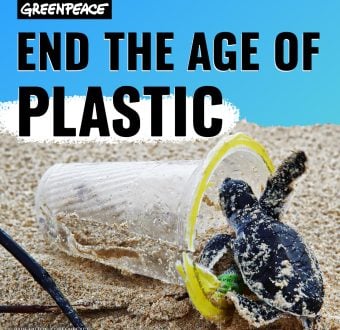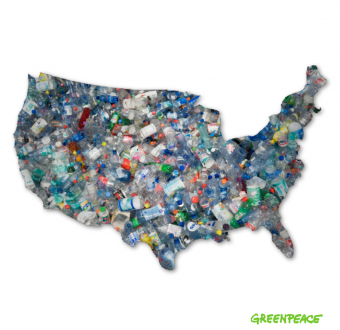Washington, DC – Scientists have revealed for the first time that plastics could be present in frequently consumed fruit and vegetables. A study of common fruits and vegetables purchased in consumer markets, published in Environmental Research, reported an average of 195,500 plastic particles per gram in apples and 189,550 per gram in pears. Broccoli and carrots also averaged over 100,000 particles per gram. The largest microplastics found through the study were in lettuce. The study also called for a review of the possible effects on human health.
According to press reports, a second study to be published in Nature Sustainability this week found that lettuce and wheat crops can absorb plastics through their root systems and into the plants. Another study published June 22 in Nature Nanotechnology also revealed that nanoplastics can accumulate in plants through their roots.
In response, Greenpeace USA Oceans Campaign Director John Hocevar said:
“The possibility of plastics in our fruit and vegetables is extremely alarming. This should prompt additional studies to assess how much plastic we are consuming through our produce each day and examine how it is impacting our health.
“Decades of plastic use have contaminated our air, water, and soil. Eating just a bite of an apple could now mean eating hundreds of thousands of bits of plastic at the same time. Corporations continue to refuse to take full responsibility for the plastic plague, and governments have failed to hold them accountable or protect public and environmental health. Instead, the petrochemical industry is in the middle of a multi-billion dollar buildout that would dramatically increase plastic production.
“We need immediate action to eliminate the unnecessary single-use plastics that are harming people around the world and disproportionately impacting communities of color. Recycling, consumer education, and waste management efforts are never going to fix this crisis. Companies like Coca-Cola, Nestlé, PepsiCo, Dow, and ExxonMobil are fully aware that their throwaway plastic is responsible for this, but they continue to deflect responsibility to consumers.
“The plastics industry has desperately tried to resurrect single-use plastics during the COVID-19 pandemic, and in doing so has put already vulnerable communities at increased risk. It is time to ban throwaway plastic packaging and support research into the health impacts of plastic pollution. It may be difficult to reverse the damage that has already been done, but we can keep things from getting worse. The longer we wait, the more plastic we will eat.”
###
Contact: Perry Wheeler, Greenpeace USA Senior Communications Specialist, P: 301-675-8766


